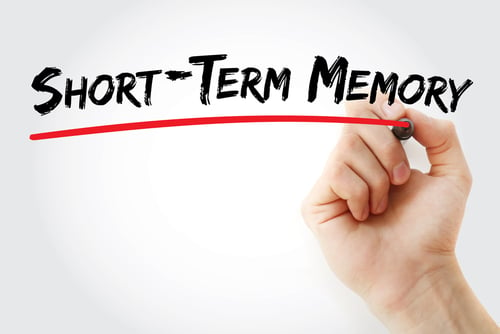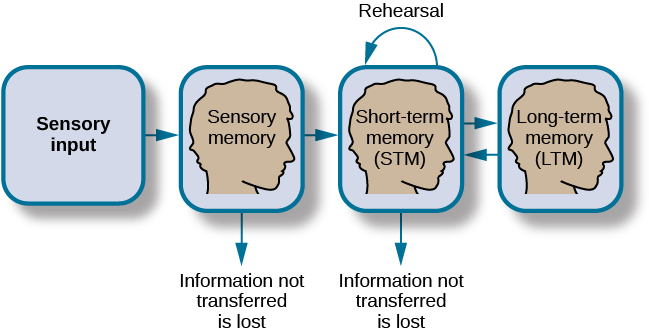


Together, short-term and working memory are also very distinct from the other major types of memory such as “autobiographical-”, “semantic-”, and “long-term” memory – and so it makes sense to talk about them together. However, both types of memory are interrelated, and – in general – anything that affects working memory usually also affects short-term memory. “Short-term memory” just deals with the temporary storing of information, while “working memory” refers both to the short-term storage of information as well as active manipulation of that information.įor example, trying to remember a phone number until you have a chance to write it down would fall under short-term memory, whereas trying to remember a phone number while adding ‘1’ to each number and then repeating it back would be an example of using working memory. Short-term memory is very similar to “working memory,” although the two have important differences. The act of trying to keep something in your memory, such as repeating the name of someone you just met over and over, is called “ rehearsing”.

Unlike “long-term memory,” this type of short-term memory can be lost rapidly unless you actively try to memorize it. An example of this would be trying to remember a phone number you were just told and could not write down. “Short-term memory” specifically refers to the storing of information for a short amount of time, in a state you can easily access. However, even though we often use just a single word to refer to this concept as a whole, there are actually many different specific types of memory!

Read on to find out what causes these memory problems, and the science behind some of the supplements, medical techniques, and other factors that are being explored for their potential effects on short-term memory!īroadly speaking, “memory” is the storing of information in your brain for later use. Unfortunately, many different factors can potentially contribute to short-term memory loss.
#Short term memory full
A plus sign next to the number “” means that the information is found within the full scientific study rather than the abstract.įrom having simple conversations to doing complex assignments at work or school, we all rely on short-term memory to get through the day. Note that each number in parentheses is a clickable link to peer-reviewed scientific studies. If you feel that any of our content is inaccurate, out-of-date, or otherwise questionable, please leave a comment or contact us at Our goal is to not have a single piece of inaccurate information on this website. They are continually monitored by our internal peer-review process and if we see anyone making material science errors, we don't let them write for us again. Our science team must pass long technical science tests, difficult logical reasoning and reading comprehension tests. Our science team is put through the strictest vetting process in the health industry and we often reject applicants who have written articles for many of the largest health websites that are deemed trustworthy. Our team comprises of trained MDs, PhDs, pharmacists, qualified scientists, and certified health and wellness specialists.Īll of our content is written by scientists and people with a strong science background. We are dedicated to providing the most scientifically valid, unbiased, and comprehensive information on any given topic. We believe that the most accurate information is found directly in the scientific source. SelfHacked has the strictest sourcing guidelines in the health industry and we almost exclusively link to medically peer-reviewed studies, usually on PubMed.


 0 kommentar(er)
0 kommentar(er)
